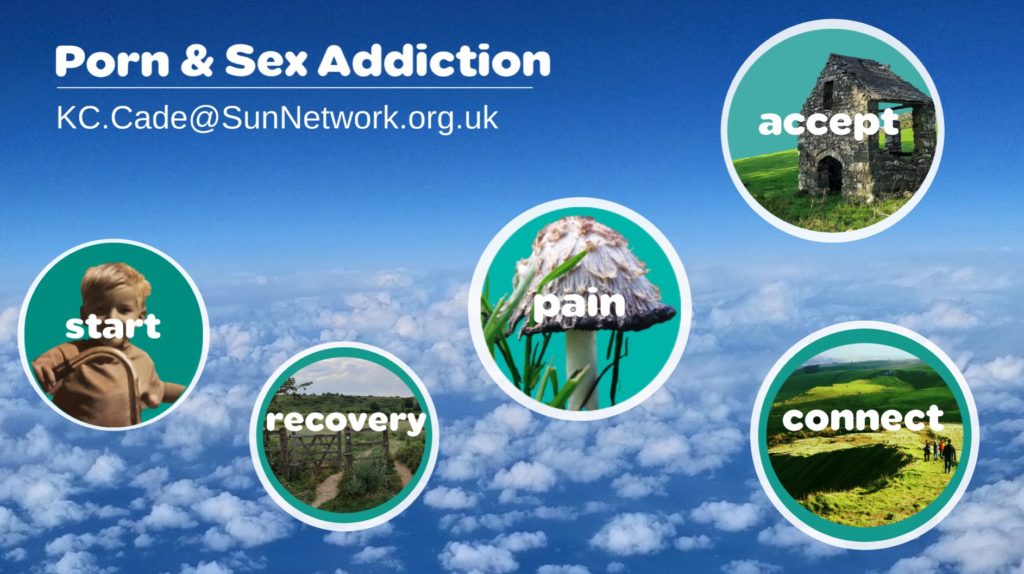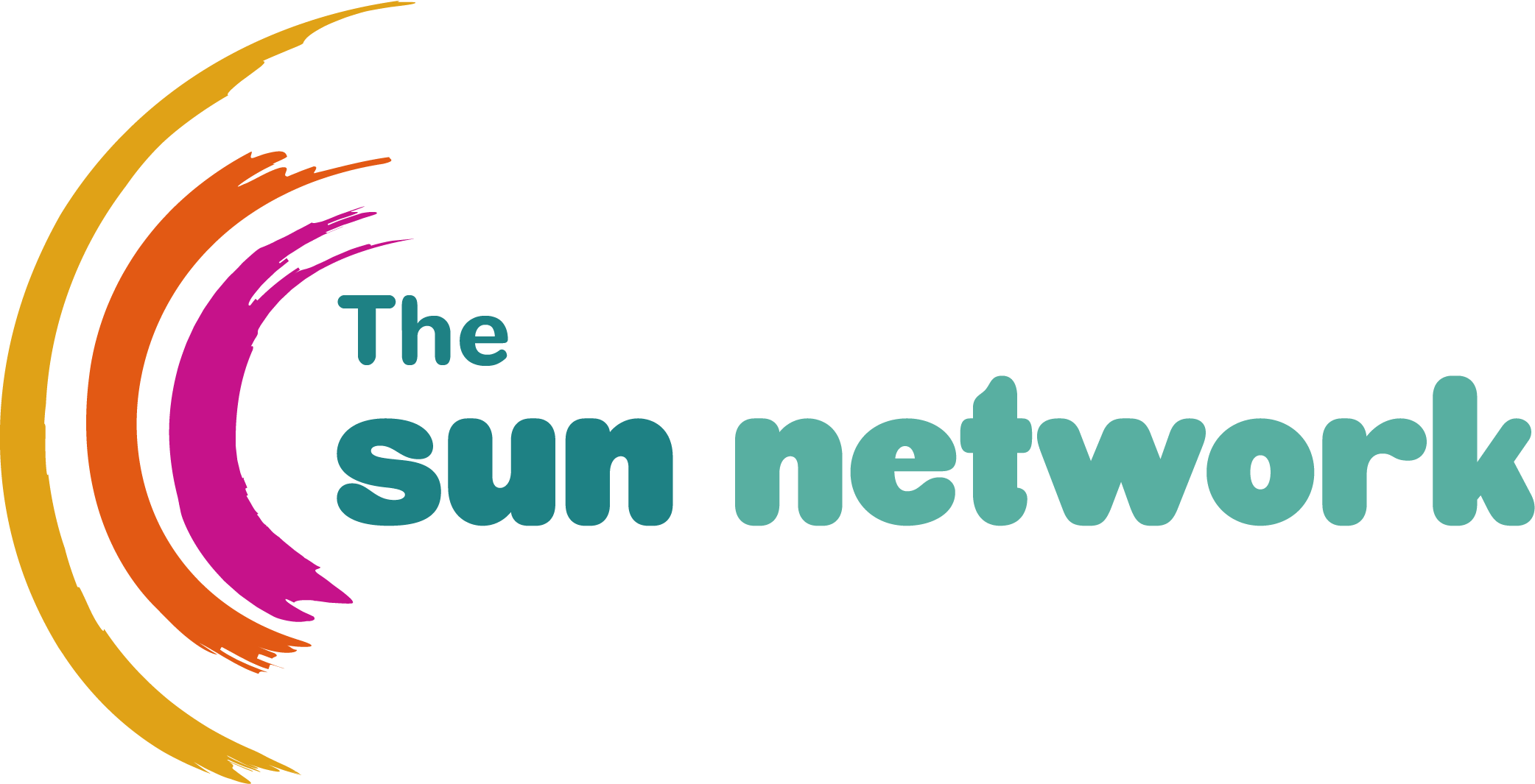Porn & Sex Addiction Training Outline

Defined:
Addiction has been clearly defined by the experts but many members of the public (and some professionals) are surprised about the facts that are not widely known. We rule out what addiction is not then lay out some definitions that start to shed the light of compassion and understanding on what addiction really is. Some are surprised to learn that porn and sex addiction aren’t really about porn or sex.
Described:
Personal experience and years of mentoring and supporting addicts has brought some useful analogies and descriptions that paint a powerful picture of what addiction feels like, how it is experienced and how it looks, from the inside.
One memorable quote that expresses the despair of porn/sex addiction from a friend who said:
“I told my wife with sadness that nothing else in life gave me any pleasure anymore”.
Myths:
There are many unhelpful myths about addiction and they tend to contribute to hopelessness and the temptation to blame and universal experiences of shame. Some are thought to be scientific facts, that have been long disproved and debunked. Dispelling these helps create a foundation of hope that means recovery is possible. Myths about addiction specific to porn and sex are common cultural and social misconceptions that we cover and dispel.
Causes:
Why do some people experience porn and shrug it off while others are obsessed and struggle to live their normal life overwhelmed by escalating compulsions? What happens to humans, especially early in our development, that is largely responsible for our susceptibility towards addictions? People need specific emotional nourishment otherwise we are all at risk of developing addictions. But porn makes use of ‘superstimulus’ (creating reactions in the brain just as strong as cocaine, heroin and meth) bypassing the usual trauma and neglect that causes many addictions.
Physiology:
What goes on in the brain in addiction? The reward system, opioid and dopamine systems and neurotransmitters are all natural and normal wiring that help us avoid pain, survive and thrive as a species. We all have dopamine receptors that impact our decision-making, focus, memory, emotions and even motor functions. How has evolutionary biology wired humans to respond to sexual gratification in ways that helps perpetuate our species, but can become addictive? Emotions that seem elusive have been tracked to naturally occurring chemicals in our brains, and addiction involves those relating to desire, energy, moods and bonding, intense fantasy, and even love.
Hope:
KC shares snippets from his own story of addiction and how his recovery has progressed, the lessons he learned that helps him and others in daily recovery. Epigenetics is the science of the changes that happen in the neuronetwork of our brains. Self care practices that link into the learnings from this course as well as realisations of negative beliefs and unhelpful automatic chronic self-talk are countered with practical tools based on cognitive behavioural therapy principles which are used by KC and others in their recovery from addiction to build new habits, rewire the addicted brain, and find recovery from addiction.
Stories Like:
- The shame and confusion of 1st experience with porn, unspoken childhood messages around nudity & sex, and changes to shame from common experience noticing an attractive person
- Powerful and joyous subtle realisations that we are not alone, not unworthy of love, not the only weird, twisted and broken person. Finding our ‘tribe’ meets a deep need that porn tried but failed to satisfy
- Example of a simple daily practice, relied upon for years, evolves and develops to counter negative self-talk and start building a way to overcome a life of unhealthy managing of emotions
- How significant emotional pain of normal life first brought grief and ultimately significant freedom through the tools learned over years of daily recovery work
Conclusion:
KC’s years of working his own recovery, and learning from others in their recovery, has shown him that the elements needed to overcome addiction parallel with the same components that are found missing in the formative years of many people’s childhoods. We cultivate and practice giving ourselves the specific things that we lacked when our brains were developing or we were traumatised. Knowing what we missed shows us what to practice giving to ourselves: kindness, compassion, support, soothing, connections–with a big emphasis on accepting and processing all our emotions.
Some References, that I mention in the training:
- Yohan Hari TED Talk, "Everything You Think You Know About Addiction is Wrong"
- Gary Wilson, "Your Brain on Porn" book
- "Your Brain on Porn" on Youtube by Gary Wilson
- Gabor Mate, "In the Realm of Hungry Ghosts" excellent book
- Sex Addiction online self-test
- Sex Addicts Anonymous - 12 step recovery community pursuing addiction recovery through mutual aid and non-religious spiritual program inspired by Alcoholics Anonymous
- Porn Addicts Anonymous - 12 step recovery community pursuing addiction recovery through mutual aid and non-religious spiritual program inspired by Alcoholics Anonymous
- S-Anon 12 step recovery community to support family members and loved-ones of those suffering with sex addiction.
- Paula Hall's training courses, therapy and resources
- Lisa Miller, "The Awakened Brain" book
- Curt Thompson, "The Soul of Shame" book and "Being Known" Podcast
- Lucy Faithful Foundation (prevent & tackle child sexual abuse & exploitation)
- Esther Perel - Expert on Sex & Relationships
